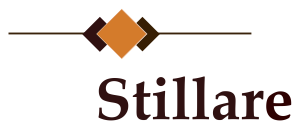
Agnes Dinkelman, december 2012
“Diplomats can help entrepreneurs with their business in developing countries, but also with implementing Corporate Social Responsibility and from thereon bring about development and interdependence as an investment in (inter)national security.”
Economic diplomacy? Finally!

It is time we not only link our economic activities to knowledge and development, but also to diplomacy and security. It sounds simple and desirable that diplomats help entrepreneurs getting started with opening new markets or to facilitate access to other governments. This way we indeed gain more economic and political foothold in other countries and build mutual dependence in the relations which makes us a valuable player in negotiations. We should be able to seize opportunities to get things back on track economically, in order to prevent poverty in our region and its possible consequences. Why did we not think of that before!
There is a simple explanation: the attitudes and assumptions of professional groups in the Netherlands differ too much. We constantly have a view of each other which stands in the way of a natural and constructive cooperation. We can have a look at the 3D approach to diplomacy, defense and development in conflict management operations. Evaluations such as those about the Dutch contribution in Uruzgan, Afghanistan, show the difficulties in cooperation between diplomats, soldiers and development workers. Moreover, attempts are made to let departments join at an early stage in order to support cooperation between professions with coordination and logistic knowledge. Steps are being made. But, reality is obstinate. We suffer from inadequate views from both sides, a lack of confidence, pecking order-like rituals and different ideas of what success really is. Which is the case in almost every multidisciplinary situation. Simple? Easy? Certainly not.
Fivefold-p and three dimensional
If we are going to work with a fivefold-p, people, planet, profit, prosperity and peace, in which diplomacy, defense, development, economy and knowledge go hand in hand then we should be committed to reach and understand each other. Judgments are not convenient, curiosity is. Unknown perspectives being confronted with known will lead to surprising insights and opportunities.
If we use the different perspectives, we have the opportunity to create a three dimensional analysis of the situation we want to do business in (entrepreneur) or interventions (military) or contributions (all stakeholders). Because it matters what life circumstances we face, how the mentality is, how the community works and what it means for the current situation. And above all, what are the interventions that can fit the reality of a certain context.
360 degrees
An analysis of the situation we will encounter may be done properly by using information already available to diplomats, military, NGOs, entrepreneurs, journalists, anthropologists, sociologists and international analysts in areas specifically desired in a particular situation. By letting professionals from various fields of expertise interpret data in a joint process, an image is constructed from various angles. 360 degrees mapped. By combining this knowledge with insight into the development dynamics of communities, we can interpret almost exactly what are promising actions in a certain place and context. Key figures on site are part of this process and get to know each other. Mutual contact can lead to a situation where players increasingly work together and use each other’s expertise and network, are aware of each other’s goals, (im) possibilities, strengths and weaknesses. That sounds simple, we all know it is not.
Economic impact and safety
With economic diplomacy as a starting point for a new method, it is decisive that diplomats help companies to position themselves so they can flourish in a sustainable manner. Therefore, the development of an area is an important social responsibility. This way the private sector can develop on a local level and have significant impact on economic activity and emphasize mutual dependence.
Alexander Rinnooy Kan, president of The Social and Economic Council of the Netherlands (SER), stated the following in a blog about state aid at the website Oneworld.nl (01.25.2012):
“… They can help companies to increase the development impact of their business. If Civil Society Organizations (CSOs) and business enter partnerships, they can achieve much more than they ever could alone. They can together strengthen the preconditions necessary to boost the private sector. Those conditions are: good governance, economic stability, good physical and technological infrastructure, legal certainty, independent unions and a strong civil society.”
I fully support his opinion. It is a mature way to work and do business based on social responsibility. However, one of the major pitfalls – as we can see in the great conflict management operations – is that our social interventions do not fit the reality of the community. The interventions will turn out counterproductive.
Pitfall
For example, we wanted to inject democracy in tribal communities which are based on groupthink and being faithful to the leader, not on individuality, loyalty to principles or substantiated opinions and a system of institutions. Such injection will be ineffective. It especially goes wrong when members of a tribal community have to individually specify what they want; they will vote on their own tribal leader. Thus, with our intervention we achieve groups that polarize. Sometimes along ethnic, sometimes along religious lines as in Iraq. In a world where people are accustomed to the language of violence it will generally lead to any form of civil war.
In Africa, the money that Westerners brought regularly resulted in reports that justified the way of spending. It seemed to be a well structured process. In practice, the money was often in regulation, until it finally reached the leader of the patronage system. We built beautiful things in Africa, similar to what fits in the West. When we withdrew, the people that were left with those achievements did not turn out to be organized, creative and autonomous enough to preserve, maintain, consolidate and develop it.
Fitting interventions
Finding and creating social interventions that fit the communities with whom we deal, intrigue me for years now. Maurits van der Linde and I, Agnes Dinkelman, both active for CSR Academy in Rotterdam, recently developed the SI-model (Stakeholder Interaction Model). It is based on the Spiral Dynamics model of Graves, Beck and Cowan. With this model we map mentality and motivations of entrepreneurs and communities and analyze the chemical reactions that occur between the two. On that basis, recommendations are made from different angles to detect appropriate ways of doing business, which is also useful in times of controversy or conflict. We can give sound advice on appropriate social interventions tailored to the goals of those involved. Also, we can largely explain how relationships have been established and how they can be affected.
This way of working has been introduced in various branches of the Dutch armed forces. In addition, various Dutch NGOs, entrepreneurs and scientists expressed their interest.
High-Level plan
The profit of economic diplomacy hinges on the involvement of several partners from different areas of expertise. Lessons learned from the 3D approach, the Stakeholder Interaction Model and Dutch experiences in ‘coping with diversity’ are all useful elements to directly bring economic diplomacy to a higher level. This high-level plan can be very useful: for thriving business and maintaining prosperity, for development of communities, in relation to our impact on the international political community and as an investment in the (inter) national security.
For questions or comments please contact the author Agnes Dinkelman by phone (06-36168643) or email: agnesdinkelman@hotmail.com.
Agnes Dinkelman (1963, Enschede) is active in the field of leadership, context analysis and multidisciplinary work for CSR Academy in the city of Rotterdam and for DMI in the city of Enschede, The Netherlands. She analyzes and influences conflict-ridden situations in both the social and business context. She worked as an analyst, (social) mediator and developer in both Dutch deprived neighborhoods and Liberia and Kurdish Iraq. She is involved in development trajectories for ethnic groups regarding leadership and intelligence issues for Defence and Police.

